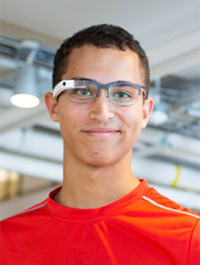
 Hello everybody! This is Omar, a sophomore at Harvard planning to concentrate in Neurobiology! I know many of you are eager for advice and so I am happy to give you guys some tips that I thought I benefited from greatly. Unlike other tips, I think most of the tips I will share you guys probably haven’t heard before.
Hello everybody! This is Omar, a sophomore at Harvard planning to concentrate in Neurobiology! I know many of you are eager for advice and so I am happy to give you guys some tips that I thought I benefited from greatly. Unlike other tips, I think most of the tips I will share you guys probably haven’t heard before.
First and foremost, DO NOT base your registration dates for the SAT off of “curves” or assuming that some tests would be easier or harder than others. I’ve heard that some students say something like: “Oh, the October SAT should be the easiest exam because many students just came out of summer; etc.” In fact, it can be completely variable and fluctuate from one testing date to another. The SAT exam is normalized such that the exams are curved the night BEFORE the exam is actually administered, meaning that students’ performance in the exam the following day has no effect on the curve.
 Second, make sure you have a so-called gradient in your test prep. For the SAT for example, start off by studying from the College Board Blue Book, as that is the fundamental prep one must go over. Once that is done, transition to Princeton Review or Kaplan, and make sure to also take practice tests from their books to expose yourself to as many questions as possible. Then, take more advanced prep such as HSA Tutoring to help you with both the fundamentals and the advanced materials (seriously, no joke!), as well as books such as Barron’s 2400; etc., that really help fine tune your skills. Of course, one of the things that you guys have to get out of this is that this can be a useful setup, but many students decide to do all of these together all at once.
Second, make sure you have a so-called gradient in your test prep. For the SAT for example, start off by studying from the College Board Blue Book, as that is the fundamental prep one must go over. Once that is done, transition to Princeton Review or Kaplan, and make sure to also take practice tests from their books to expose yourself to as many questions as possible. Then, take more advanced prep such as HSA Tutoring to help you with both the fundamentals and the advanced materials (seriously, no joke!), as well as books such as Barron’s 2400; etc., that really help fine tune your skills. Of course, one of the things that you guys have to get out of this is that this can be a useful setup, but many students decide to do all of these together all at once.
 Another piece of advice that I have for you today is to clean up your social media. The last thing any student could even possibly think of is that colleges look at students’ social network profiles (Facebook; etc.), when they actually do! In fact, if they find something that they don’t like, then that could perhaps be the deciding factor and could turn your admission into rejection! In other words, be responsible on social media. Have a professional presence so that admissions officers don’t find something that they don’t like. It’s important to keep it this way throughout not jus the college admissions process but also throughout your career, as even many jobs do the same thing, as social media says a lot about a person’s innate behavior with friends and family, away from the professional world. But maybe you’re not so “away” from the professional
sphere after all—they’ll look at your social media, and so you have to take that into account.
Another piece of advice that I have for you today is to clean up your social media. The last thing any student could even possibly think of is that colleges look at students’ social network profiles (Facebook; etc.), when they actually do! In fact, if they find something that they don’t like, then that could perhaps be the deciding factor and could turn your admission into rejection! In other words, be responsible on social media. Have a professional presence so that admissions officers don’t find something that they don’t like. It’s important to keep it this way throughout not jus the college admissions process but also throughout your career, as even many jobs do the same thing, as social media says a lot about a person’s innate behavior with friends and family, away from the professional world. But maybe you’re not so “away” from the professional
sphere after all—they’ll look at your social media, and so you have to take that into account.
I hope you guys learned a lot from these two pieces of advice! Good luck in your endeavors and in your college admissions process!
Visit HSA Tutoring today for expert help!

